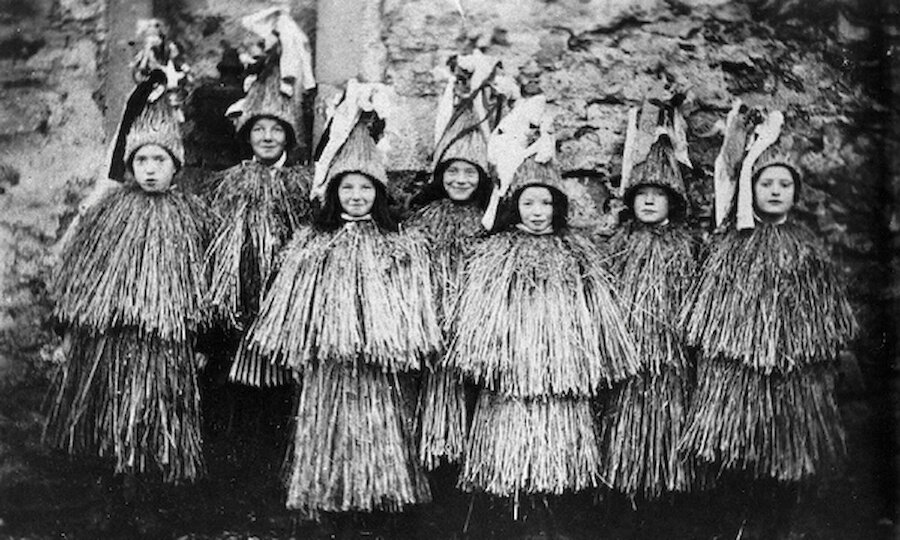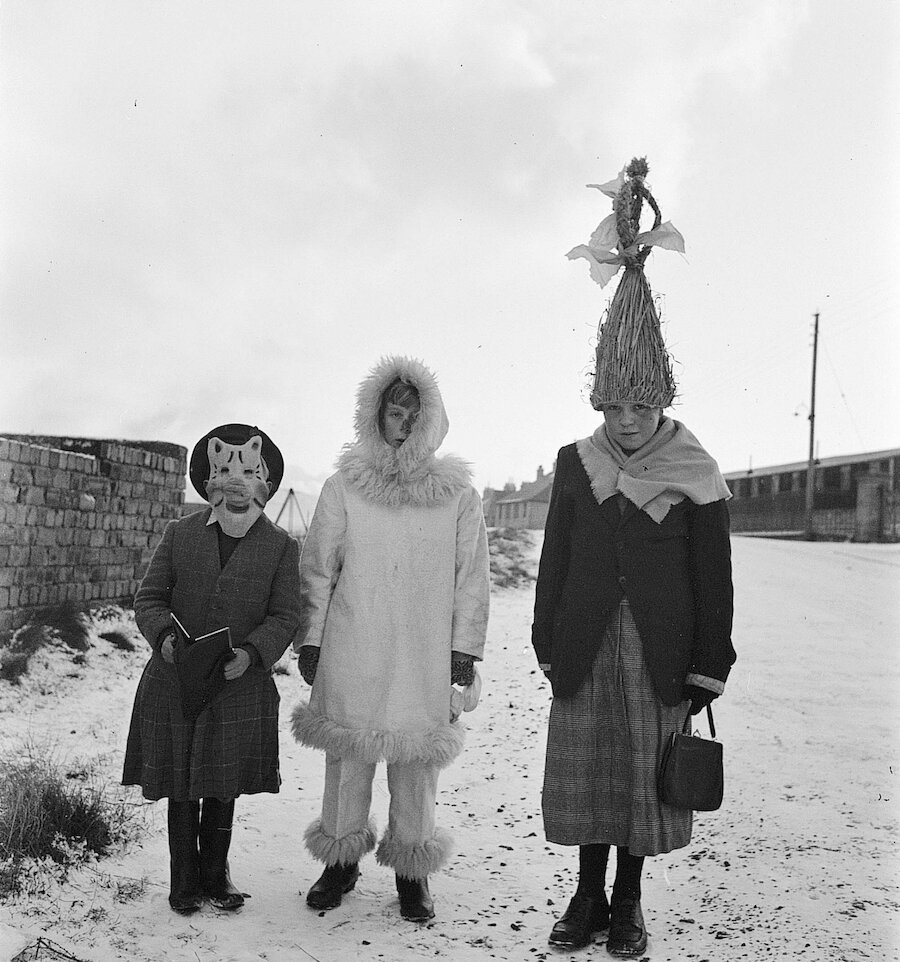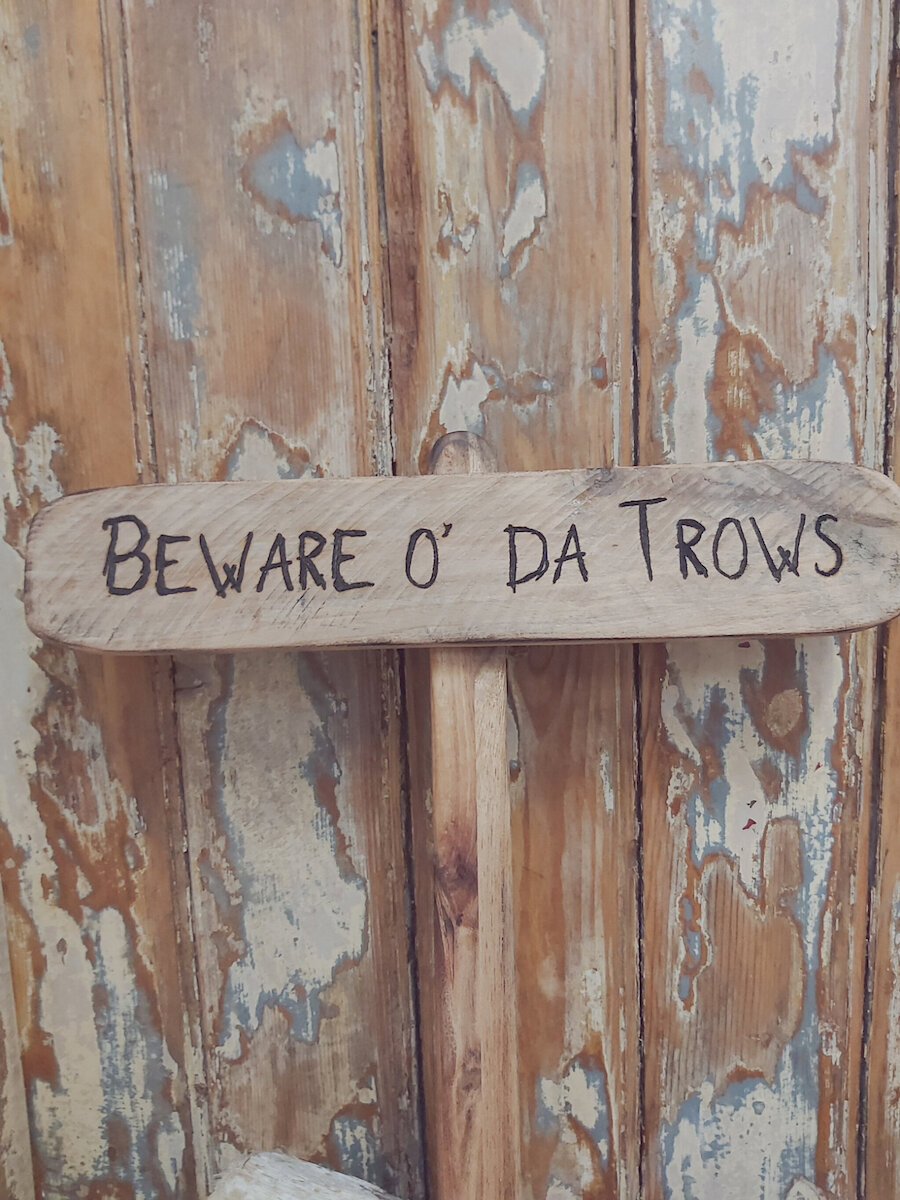Shetland had its own unique blend of tradition influenced by Christianity, with its roots firmly placed in old pagan customs.
One of the most enduring traditions is to go guizing. John Graham’s Shetland Dictionary states that to guize is “to go in disguise at a festival”, and we might be expected to ask someone, “Is du gyaan a-guizin dis year?” When we were growing up, we would go guizing – and I still encourage my children to do the same.
Similarly, a guizer is “a person in disguise taking part in a festival, Halloween, Christmas, Hogmanay, Up Helly Aa.” ‘Guizing’ is not a Shetland word; it’s thought to have come from English in the late 15th century. However, it seems to have persisted in Shetland, where it has fallen out of use elsewhere.
We might dismiss Halloween as a purely American import into Shetland, and the UK more generally, but Shetland did have its own version of Halloween in centuries past.
Marking Winter Day
To give a little context, I’ll draw you back to the 19th century, to a time where most people lived in crofts – or smallholdings – and lived a subsistence way of life, depending on the sea and the land around them to survive.
This time of year, as autumn transitions into winter, was one where people might finally be able to let out a collective sigh of relief as the hard work of summer had come to an end once more. The crops were harvested and the summer fishery ended. This was a time that people might expect to relax a little as the nights began to draw in and winter crept ever closer.
The first calendar event of this new season was Winter Day, held on 14th October. J. R Nicolson recounts this event in his book Shetland Folklore where he explains that this day marked the end of the “summer half-year”, a time when the young cattle were allowed free reign to wander around the hills. In other words, this was the time when we could expect the cows to be taken in for the winter. The Sunday following Winter Day was known as Winter Sunday, and the day before was the chosen date to bring the cows into the byre for the winter. This day was clumsily known as Winter Sunday Saturday – yes, you read that right!



